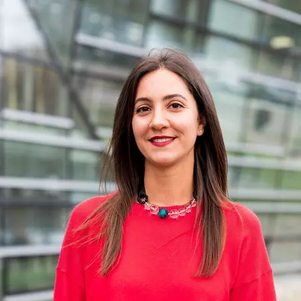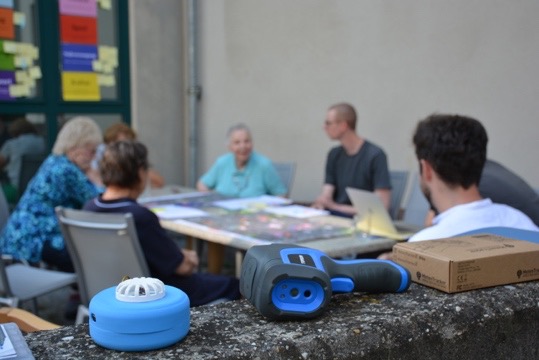Open Urban Sustainability Hubs (OPUSH)
- Ongoing Project -
The OPUSH project aims to build local capacity, networks and infrastructures for sustainable urban transformation and social innovation. It does so through co-creation and active community engagement between universities, libraries, local municipalities and communities. University libraries stand out as hubs of cutting-edge research. But for most citizens, their city library is a place that is more accessible. In the OPUSH project, the university partners from Barcelona, Delft, Tallinn and Vienna team up with local libraries to create new networks in the contexts of sustainable development. Local municipalities are involved in the project to ensure application, ownership and sustainability of solutions. Each of the cities designs their citizen science projects based on the needs and interests of local communities with the ultimate goal of establishing lasting relationships between all partners.
For example, in Delft, the project focuses on two main pilots:
- Improving the design of the local library, DOK, with ideas from children aged 7-11. Collecting data on what makes outside spaces enjoyable for children.
- Creating new energy labels and plans for sustainable energy use in the houses with the ‘monument’ status.
Impact
Social Impact
The project connects vulnerable groups directly with their environment and people who can help make changes. By sharing knowledge, it strengthens the participants' ability to make decisions and gives them the power to speak up for themselves. By creating new infrastructures for participatory research, the project ensures the ownership of the solutions by stakeholders who can bring about change (such as municipality).
Scientific Impact
The project introduces a participatory approach to energy transition and sustainable solutions research. It dismantles existing barriers and connects both current and new infrastructure, creating a collaborative space for research. This approach ensures that practical, actionable solutions are developed and owned by the entire community, not just the researcher, and new sustainable networks are developed for future research.
Background and Motivation
Researcher and local libraries have great potential for community-based research collaboration. Various projects and working groups on citizen science, such as PLACED (2017-2019), LIBER's ongoing Citizen Science group, COST Action CA15212 (2016-2020), and INOS (2019-2022), have identified libraries as ideal infrastructures for linking researchers with the communities that can benefit from their work. This project builds on these perspectives to strengthen partnerships with libraries and local stakeholders, making citizen science research more accessible and impactful.
Societal and Academic Relevance
OPUSH intends to make a significant and scalable contribution to the development of contemporary knowledge hubs, addressing urban sustainability and social inequality. OPUSH facilitates capacity building for urban transformation, social innovation, co-creation and active community engagement through a Citizen Science approach in which research libraries team up with related higher education communities and GLAM institutes (galleries, (public) libraries, archives, museums), municipal authorities, SMEs and citizens in new forms of low-threshold knowledge transfer and participation such as urban laboratories or open knowledge hubs.
Methodology and Steps
The project consists of two independent pilots, each with distinct methodologies and levels of citizen engagement.
Pilot 1: Improving Local Library Design
This pilot focuses on enhancing the design of the local library, DOK, and understanding what makes outdoor spaces enjoyable for children. It follows these steps:
- Research Framework Development: Collaborate with the local library to identify redesign needs.
- Data Collection: Engage children who frequently visit the library in a workshop to gather their ideas on library design and what makes outdoor spaces enjoyable.
- Data Analysis and Co-Creation: Analyze the collected data and design options for the final solution.
- Presentation: Present the findings to the participants for feedback and the library director for implementation.
Pilot 2: Sustainable Energy Use in Monument Houses
This pilot focuses on creating new energy labels and sustainable energy plans for houses with 'monument' status. It follows these steps:
- Research Framework Development: Coordinate with the municipality and local community organizations to set criteria for the houses involved.
- Co-Development of Methodology: Develop a suitable methodology with volunteers from the local community.
- Data Collection: Distribute surveys to residents of monument houses, collect responses.
- Joint Data Analysis: Analyze data with volunteers from the community organization.
- Solution Co-Creation: Conduct a workshop with participating residents to co-develop solutions.
- Presentation of Results: Share the results with stakeholders to ensure future adoption of the solutions.
Stakeholders
- TU Delft, TU Delft Library (and other participating universities)
- Local citizens
- Local community organisations
- Local libraries
- Local municipalities
Project leads

Contact person
Tanya Yankelevich
Institution: TU Delft Library and TU Delft Open Science Programme
